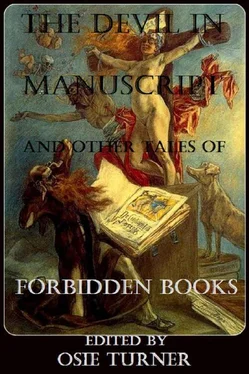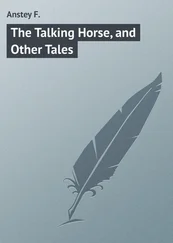“Has 11.3.34 gone out? Do you recollect noticing that number?”
“Notice the number? What do you take me for, Mr Garrett? There, take and look over the tickets for yourself, if you’ve got a free day before you.”
“Well then, has a Mr Eldred called again?—the old gentleman who came the day I was taken ill. Come! You’d remember him.”
“What do you suppose? Of course I recollect of him: no, he haven’t been in again, not since you went off for your ‘oliday. And yet I seem to—there now. Roberts’ll know. Roberts, do you recollect of the name of Heldred?”
“Not arf,” said Roberts. “You mean the man that sent a bob over the price for the parcel, and I wish they all did.”
“Do you mean to say you’ve been sending books to Mr Eldred? Come, do speak up! Have you?”
“Well now, Mr Garrett, if a gentleman sends the ticket all wrote correct and the secketry says this book may go and the box ready addressed sent with the note, and a sum of money sufficient to deefray the railway charges, what would be your action in the matter, Mr Garrett, if I may take the liberty to ask such a question? Would you or would you not have taken the trouble to oblige, or would you have chucked the “ole thing under the counter and—”
“You were perfectly right, of course, Hodgson—perfectly right: only, would you kindly oblige me by showing me the ticket Mr Eldred sent, and letting me know his address?”
“To be sure, Mr Garrett; so long as I’m not ‘ectored about and informed that I don’t know my duty, I’m willing to oblige in every way feasible to my power. There is the ticket on the file. J. Eldred, 11.3.34. Title of work: T-a-l-m—well, there, you can make what you like of it—not a novel, I should ‘azard the guess. And here is Mr Heldred’s note applying for the book in question, which I see he terms it a track.”
“Thanks, thanks: but the address? There’s none on the note.”
“Ah, indeed; well, now… stay now, Mr Garrett, I ‘ave it. Why, that note come inside of the parcel, which was directed very thoughtful to save all trouble, ready to be sent back with the book inside; and if I have made any mistake in this “ole transaction, it lays just in the one point that I neglected to enter the address in my little book here what I keep. Not but what I dare say there was good reasons for me not entering of it: but there, I haven’t the time, neither have you, I dare say, to go into ‘em just now. And—no, Mr Garrett, I do not carry it in my ‘ed, else what would be the use of me keeping this little book here—just a ordinary common notebook, you see, which I make a practice of entering all such names and addresses in it as I see fit to do?”
“Admirable arrangement, to be sure—but—all right, thank you. When did the parcel go off?”
“Half-past ten, this morning.”
“Oh, good; and it’s just one now.”
Garrett went upstairs in deep thought. How was he to get the address? A telegram to Mrs Simpson: he might miss a train by waiting for the answer. Yes, there was one other way. She had said that Eldred lived on his uncle’s estate. If this were so, he might find that place entered in the donation-book. That he could run through quickly, now that he knew the title of the book. The register was soon before him, and, knowing that the old man had died more than twenty years ago, he gave him a good margin, and turned back to 1870. There was but one entry possible. 1875, August 14th. Talmud: Tractatus Middoth cum comm. R. Nachmanidae. Amstelod. 1707. Given by J. Rant, D.D., of Bretfield Manor.
A gazetteer showed Bretfield to be three miles from a small station on the main line. Now to ask the doorkeeper whether he recollected if the name on the parcel had been anything like Bretfield.
“No, nothing like. It was, now you mention it, Mr Garrett, either Bredfield or Britfield, but nothing like that other name what you coated.”
So far well. Next, a time-table. A train could be got in twenty minutes—taking two hours over the journey. The only chance, but one not to be missed; and the train was taken.
If he had been fidgety on the journey up, he was almost distracted on the journey down. If he found Eldred, what could he say? That it had been discovered that the book was a rarity and must be recalled? An obvious untruth. Or that it was believed to contain important manuscript notes? Eldred would of course show him the book, from which the leaf would already have been removed. He might, perhaps, find traces of the removal—a torn edge of a fly-leaf probably—and who could disprove, what Eldred was certain to say, that he too had noticed and regretted the mutilation? Altogether the chase seemed very hopeless. The one chance was this. The book had left the library at 10.30: it might not have been put into the first possible train, at 11.20. Granted that, then he might be lucky enough to arrive simultaneously with it and patch up some story which would induce Eldred to give it up.
It was drawing towards evening when he got out upon the platform of his station, and, like most country stations, this one seemed unnaturally quiet. He waited about till the one or two passengers who got out with him had drifted off, and then inquired of the station-master whether Mr Eldred was in the neighbourhood.
“Yes, and pretty near too, I believe. I fancy he means calling here for a parcel he expects. Called for it once to-day already, didn’t he, Bob?” (to the porter).
“Yes, sir, he did; and appeared to think it was all along of me that it didn’t come by the two o’clock. Anyhow, I’ve got it for him now,” and the porter flourished a square parcel, which—a glance assured Garrett—contained all that was of any importance to him at that particular moment.
“Bretfield, sir? Yes—three miles just about. Short cut across these three fields brings it down by half a mile. There: there’s Mr Eldred’s trap.”
A dog-cart drove up with two men in it, of whom Garrett, gazing back as he crossed the little station yard, easily recognized one. The fact that Eldred was driving was slightly in his favour—for most likely he would not open the parcel in the presence of his servant. On the other hand, he would get home quickly, and unless Garrett were there within a very few minutes of his arrival, all would be over. He must hurry; and that he did. His short cut took him along one side of a triangle, while the cart had two sides to traverse; and it was delayed a little at the station, so that Garrett was in the third of the three fields when he heard the wheels fairly near. He had made the best progress possible, but the pace at which the cart was coming made him despair. At this rate it must reach home ten minutes before him, and ten minutes would more than suffice for the fulfilment of Mr Eldred’s project.
It was just at this time that the luck fairly turned. The evening was still, and sounds came clearly. Seldom has any sound given greater relief than that which he now heard: that of the cart pulling up. A few words were exchanged, and it drove on. Garrett, halting in the utmost anxiety, was able to see as it drove past the stile (near which he now stood) that it contained only the servant and not Eldred; further, he made out that Eldred was following on foot. From behind the tall hedge by the stile leading into the road he watched the thin wiry figure pass quickly by with the parcel beneath its arm, and feeling in its pockets. Just as he passed the stile something fell out of a pocket upon the grass, but with so little sound that Eldred was not conscious of it. In a moment more it was safe for Garrett to cross the stile into the road and pick up—a box of matches. Eldred went on, and, as he went, his arms made hasty movements, difficult to interpret in the shadow of the trees that overhung the road. But, as Garrett followed cautiously, he found at various points the key to them—a piece of string, and then the wrapper of the parcel—meant to be thrown over the hedge, but sticking in it.
Читать дальше












